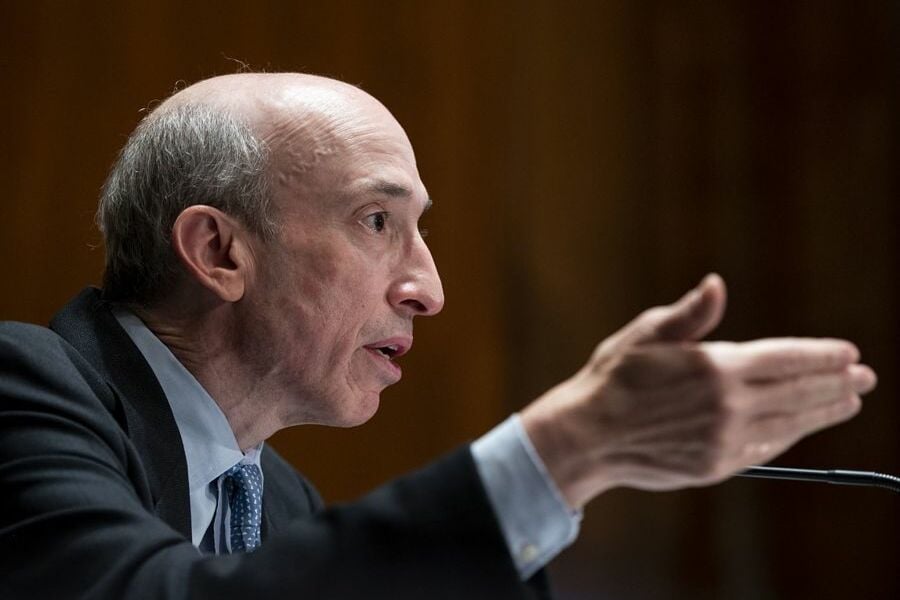

Wall Street’s top regulator may use its authority to exempt crypto companies from certain securities laws to help the industry come into compliance, Securities and Exchange Commission Chair Gary Gensler said Thursday.
“We do have robust authorities from Congress to use our exemptive authorities that we can tailor” for disclosure and investor protection, Gensler said during an interview with Yahoo! Finance.
The comments are among Gensler’s most pointed yet on how the agency might work with the digital asset community. He mentioned that such an approach is used for asset-backed securities and equity offerings.
Gensler repeated a warning that many crypto companies are “non-compliant” without naming any. Such companies are deemed to be offering unregistered securities.
“There’s a potential path forward,” Gensler said. “I’ve said to the industry, to the lending platforms, to the trading platforms: ‘Come in, talk to us.’”
The digital asset industry, however, has said that the SEC hasn’t provided a clear path to allow companies to register.
Crypto lending platforms have been among the most hard-hit during the recent liquidity crisis. Celsius Network Ltd. filed for Chapter 11 bankruptcy, while BlockFi, another hobbled crypto lender, received a capital injection from crypto exchange FTX US.
In February, BlockFi reached a settlement with the SEC over a product that paid customers high interest rates by lending out investors’ digital tokens. BlockFi said at the time it would pursue SEC registration of the product.

The 25-year industry veteran previously in charge of the Wall Street bank's advisor recruitment efforts is now fulfilling a similar role at a rival firm.

Former Northwestern Mutual advisors join firm for independence.

Executives from LPL Financial, Cresset Partners hired for key roles.

Geopolitical tension has been managed well by the markets.

December cut is still a possiblity.
Streamline your outreach with Aidentified's AI-driven solutions
This season’s market volatility: Positioning for rate relief, income growth and the AI rebound
